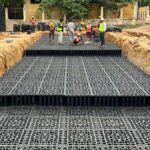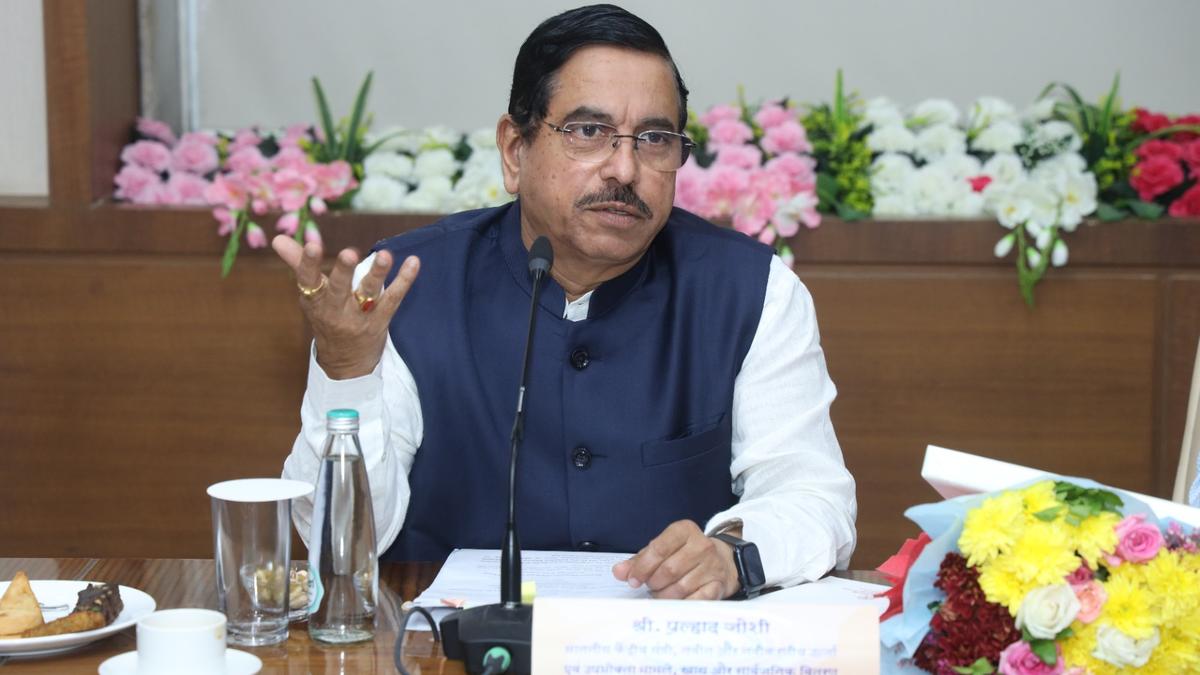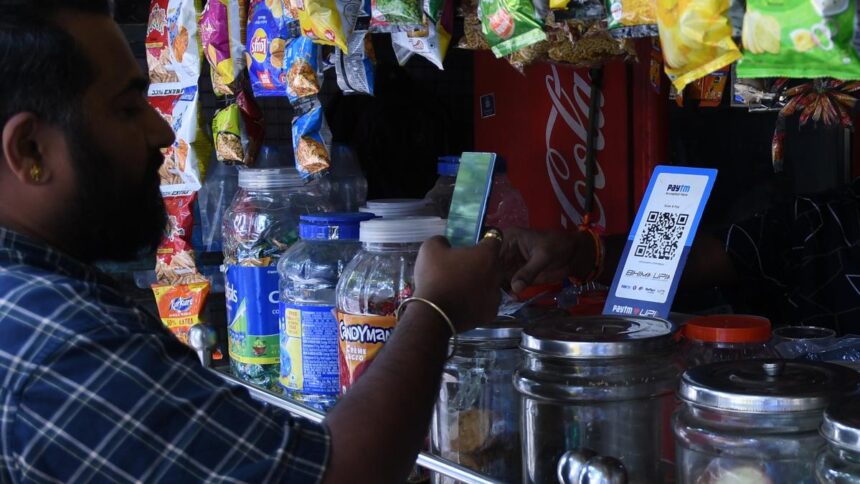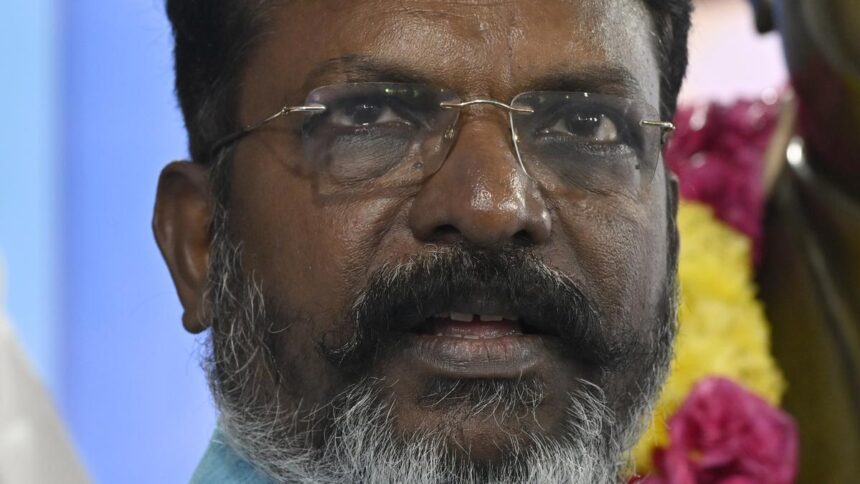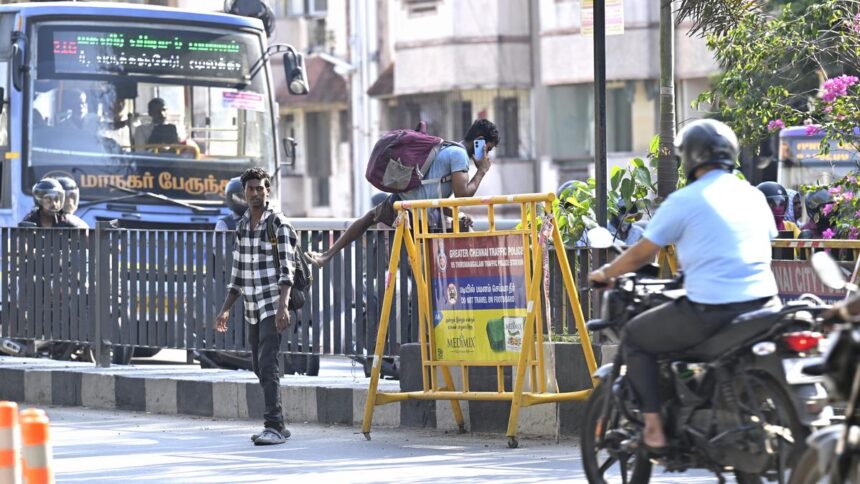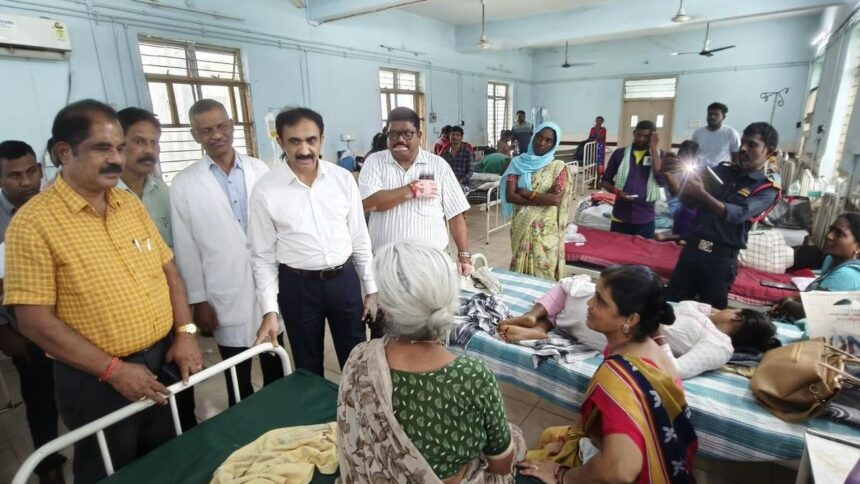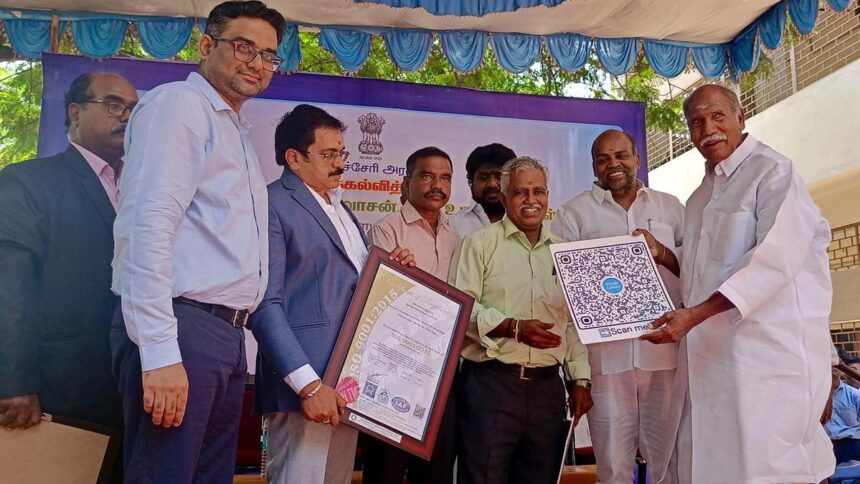
Union Minister for New and Renewable Energy and Consumer Affairs, Food and Public Distribution, Pralhad Joshi.
| Photo Credit: The Hindu
The Ministry of New and Renewable Energy (MNRE) has provided over ₹200 crore in funding to the National Centre for Photovoltaic Research and Education (NCPRE) at IIT Bombay over the past 15 years, as part of its efforts to support India’s solar R&D ecosystem and the broader 100 GW solar mission, said Union Minister for New and Renewable Energy and Consumer Affairs, Food and Public Distribution, Pralhad Joshi on Tuesday (July 15, 2025).
Interacting with journalists after his visit to the centre, he said that the technological progress achieved at the institute—particularly in Silicon-Perovskite Tandem Solar Cell development—positions India for leadership in next-generation photovoltaics.
During his visit, the Minister toured key facilities including the Perovskite Tandem Solar Cell lab, the Silicon Fab, and the Medium Voltage Laboratory. He interacted with researchers and acknowledged the work of IIT-Bombay-incubated startup— Advanced Renewable Tandem-Photovoltaics India (ART-PV India) that has developed a 2-Terminal Monolithic Silicon/CdTe-Perovskite tandem solar cell with a conversion efficiency of 29.8%. “This is a national milestone and one of the highest performance levels ever achieved in India,” he said.
“NCPRE was launched at IIT Bombay in 2010 with funding from the MNRE to provide R&D and education support for India’s ambitious 100 GW solar mission. Till date, MNRE has provided over ₹ 200 crore funding to NCPRE, IIT Bombay, over the last 15 years. MNRE is also supporting ART-PV India with $10 million (₹ 83 crore) for establishing a state-of-the-art pilot manufacturing facility in IIT-B campus, in line with the commitment to nurturing domestic Intellectual Property, and ensuring Indian innovation reaches global markets. MNRE will continue to provide policy and financial support to ensure India’s RE sector thrives on innovation and self-reliance,” Mr. Joshi said.
“Ministry of New and Renewable Energy is proud to support NCPRE’s pioneering work in high-efficiency, low-cost Silicon-Perovskite Tandem Solar Cells, a game-changer for India’s solar energy future,” he said.
He noted that this technology has the potential to achieve more than 30% efficiency, far surpassing conventional solar panels, making India a global leader in next-gen photovoltaics. “By investing in such innovations, we are driving down the cost of solar energy, making it more accessible for all Indians. India is not just adopting renewable energy but defining its future—through research in perovskite solar cells, Inverter technology, PV-reliability, green hydrogen, and energy storage,” the Minister said.
Through initiatives like the Renewable Energy Research & Technology development (RE-RTD) and R&D funding schemes, MNRE is enabling institutions like NCPRE to accelerate lab-to-market transitions, Mr. Joshi said.
“NCPRE’s work exemplifies how public-funded research, when coupled with policy support, can position India as a global clean energy hub,” he added.
Mr. Joshi urged the IIT Bombay-ART PV team to commercially demonstrate that Perovskite Tandem Solar Cells are not only scalable but also profitable. “By making advanced technologies accessible to industry, we will not just be driving efficiency but also building a stronger innovation ecosystem. The Union Cabinet approved the Research Development and Innovation (RDI) Scheme just two weeks back, and the budget for Gross Expenditure on Research and Development (GERD), stands at ₹ 1.27 lakh crore,” he said.
Published – July 16, 2025 07:11 am IST






